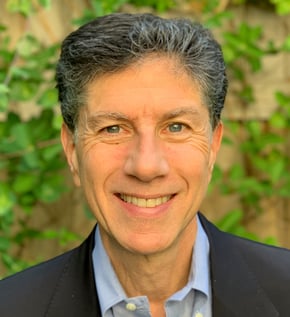What senior wealth and asset management executives think are the industry’s biggest threats and opportunities

Where do your peers think the industry is headed? What do they see as big opportunities? The primary threat to their profitability? Well, we speak with a lot of heads of wealth management, so we can tell you. The quotes below are representative of widespread concerns.
“Much of what our advisors do is not valuable and is not valued in the marketplace.”
— Head of Wealth, Regional Bank
The speaker was explaining why he felt it was imperative for his organization to change the advisor role. The advisor activities that he deemed not valuable included 1) researching securities and the market, and 2) rebalancing portfolios. What advisor activity does add value? It starts with financial planning, but includes oversight of everything that touches on a client’s financial well-being.
“In the long run, we’re not going to be compensated for anything a robo advisor can do just as well.”
— Principal, RIA
In a different way, the speaker was getting at the same idea — that advisors should focus on valuable activities that can’t be performed better by others. Robo-advisory firms can select securities as well as advisors can. They rebalance just as well, too. What can’t a robo-advisor do? Establish a relationship of trust that enables advisors to guide and change investor behavior — to set realistic goals and stick to realistic plans. (See Robo-Advisors vs Human Advisors: Who’s Better at What?)
“Our mission is more than caring for the client’s financial well-being, it’s caring for their well-being, period.”
— Principal, RIA
The two previous statements were about what advisor-direct wealth management shouldn’t be. This quote is about what it should be. It comes from an RIA that had already made the transition away from product-, trade- and performance-oriented value propositions. What replaces it? It goes beyond mere financial planning, though that is key. The focus is on the ends, not just the means. It is caring for each client’s financial well-being. But it doesn’t stop there. Financial well-being is, in itself, an intermediate goal, a resource that supports the client’s general well-being.
“Mutual funds are dead. And so are ETFs.”
— Senior Executive, Asset Manager
The three previous quotes were from wealth managers. This is from an asset manager. The idea expressed — that mutual funds and ETFs are facing obsolescence — isn’t entirely novel. What’s interesting here is that the speaker is a senior executive at...a mutual fund and ETF company. What did this executive think was going to kill the mutual funds and ETF? The answer: direct indexes and low-cost UMAs.
At heart, mutual funds and ETFs are just vehicles for delivering intellectual capital. It’s both less expensive and better for the investor to deliver this intellectual capital in the form of model portfolios. Instead of investors owning shares in a commingled vehicle (like a mutual fund or ETF) that includes a bunch of securities, the investor owns the fund’s security holdings directly. This approach offers investors more customization and greater opportunity for tax management than is possible with mutual funds or ETFs. Some have called this the “Great Unwrapping.”
“The decline of product-oriented value propositions poses a fundamental threat to the asset management industry. The only response is for asset managers to move up the value chain.”
— Senior Executive, Asset Manager
This quote is from a different asset management firm, but it’s basically a follow-on to the previous statement. If product-oriented value propositions are in decline, what is the future of asset management, which, after all, is basically just selling product?
The answer offered by this asset manager — echoed by many others — is that they need to move up the value proposition chain with four new services: 1) offering guidance on asset allocations (e.g. “Aggressive Growth”), not just single asset classes, 2) rebalancing portfolios as a service, 3) offering lots of tax management and customization, and 4) creating a mechanism for delivering their intellectual property to individual accounts in a timely and safe manner (See Asset Managers Pivot to Sell Solutions, Not Just Product).
Five quotes from senior executives from across the wealth and asset management industry. The common theme? That wealth management is changing, and asset management is going to have to change with it. Gone are the days of “the advisor as security expert,” focused on selecting stocks, funds and managers that will beat the market. In its place: the “advisor as guide,” focused on the client’s financial well-being, with rebalancing and security selection delegated to others — either a central group within the firm or to third-party specialists.
The details of what “advisor as guide” means in practice differ from firm to firm. And not everyone is moving at the same pace. Some firms have already made the transition. Some haven’t gotten started yet. But everyone we speak with is preparing for change.


COMMENTS